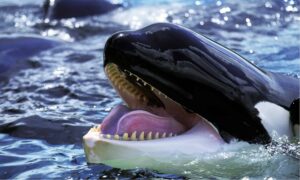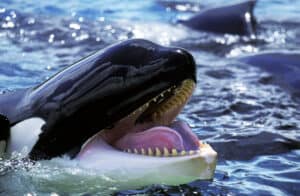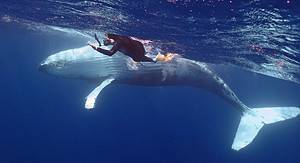Humans have always been regarded as the most intelligent animals on Earth. But what about other intelligent animals that exist in an entirely different biome?
There are many different animals around the world that are considered highly intelligent. Although terrestrial animals are often deemed the most intelligent, recent research and studies are proving how intelligent aquatic animals are. One of these intelligent animals roams the world’s oceans. Below, we discuss just how intelligent the orca, or killer whale, actually is.
About Killer Whales
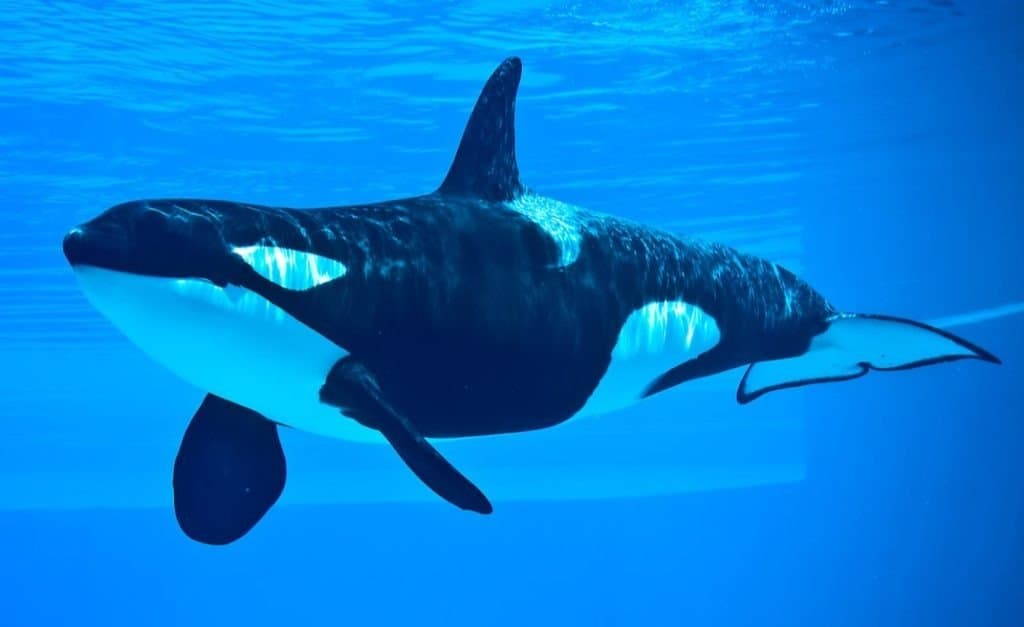
Killer whales are one of the most intelligent marine animals in the world.
©Miles Away Photography/Shutterstock.com
The orca (Orcinus orca) is the largest member of the dolphin family, making them marine mammals. They are social, vicious apex predators, and have excellent problem-solving skills, all of which adds up to high intelligence.
Type and Appearance
Orcas have been divided into different ecotypes, including:
- Type A orcas
- Pack Ice orcas (Type B: large)
- Gerlaches orcas (Type B: small)
- Ross Sea orcas (Type C)
- Subantarctic orcas (Type D)
- North Atlantic orcas (Type 1)
- North Atlantic orcas (Type 2)
- Resident orcas
- Biggs or transient orcas
- Offshore orcas
An orca’s feeding habits, morphology, conservation status, behavior, and location can vary depending on their ecotype. However, most of the information researchers and scientists know about orcas is from the resident orcas in the eastern North Pacific Ocean. Those are the orcas we will primarily be referring to throughout this article.
Most resident orcas are relatively easy to identify. They have a distinctive black and white body that is capable of reaching sizes of up to 30 feet and weighing around 8,000 to 12,000 pounds. Some orcas may have a more greyish color than black, and sometimes a yellowish tint to their bodies from diatom coating. Their size and appearance can vary between the ecotypes, with certain orcas being much smaller than others.
Location
Orcas inhabit the various major oceans around the world but are primarily found in the eastern North Pacific Ocean, along with the Arctic and eastern Antarctic waters. They generally prefer colder waters, but orcas are still found in tropical waters from the Gulf of Mexico to Australia, Hawaii, and the Galapagos Islands.
So far, there are estimated to be around 50,000 orcas inhabiting oceans and coastal waters across the globe.
Behavior and Diet
In terms of their behavior, orcas are regarded as social, communicative, intelligent, and remarkable cooperative hunters. Orcas are true carnivores and powerful hunters that prey on various marine creatures.
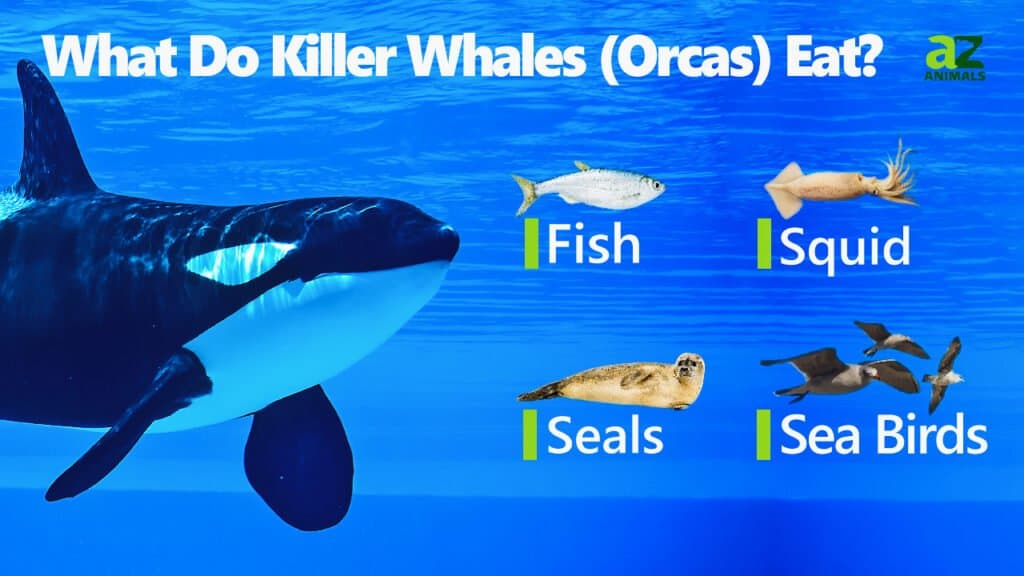
An orca’s typical diet consists of fish, crustaceans, large mammals, sea birds, and even invertebrates. The foods that they mainly feed on depend on their ecotype, with some orcas feeding on large mammals and others on fish. Orcas are also known to calculate their attacks and hunt in groups to take down seals, walruses, and sometimes whales with exceptional skill and precision.
Aside from being powerful predators, orcas do not disappoint when it comes to their social behaviors. They are highly social animals that prefer to form groups known as pods. These pods can consist of five to 100s of orcas, who stick together for social interaction, mating, and even hunting prey. The pod size varies by ecotype, but resident pods are usually much larger than transient pods.
Orcas typically form a social hierarchy within the pod to establish dominance, and the most dominant position is usually female. They communicate using echolocation and often form unique languages.
Killer Whale Intelligence
How Smart Are Orcas?
For an animal to be considered intelligent, they need to meet certain criteria. Generally, scientists look for social skills, complex emotional functions, problem-solving skills, and the ability to learn. According to these factors, orcas are highly intelligent marine animals. They have the second largest brain of all oceanic mammals.
What Makes Orcas Intelligent?
Orcas exceed the criteria for high intelligence. They are capable of:
- Forming complex social interactions
- Learning and applying new hunting techniques
- Forming unique languages and methods of communication
- Experiencing a wide range of emotions
- Performing certain intellectual functions
- Being socially aware and self-aware
- Sharing their food amongst pod members
- Establishing a sort of culture unique to the pod or ecotype
- Preferring certain prey over others
- Experiencing grief from the death of pod members or offspring
- Having a remarkable short- and long-term memory
- Complex auditory processing
Orcas are one of the most intelligent aquatic mammals, and researchers are slowly unraveling the exact reasons for their intelligence. What we do know is that orcas are social, emotional, and conscious animals with complex cognitive abilities. These abilities make them similar to humans, yet also structurally different. In some cases, their brains exceed a human’s cognitive capacities.
An Orca’s Brain
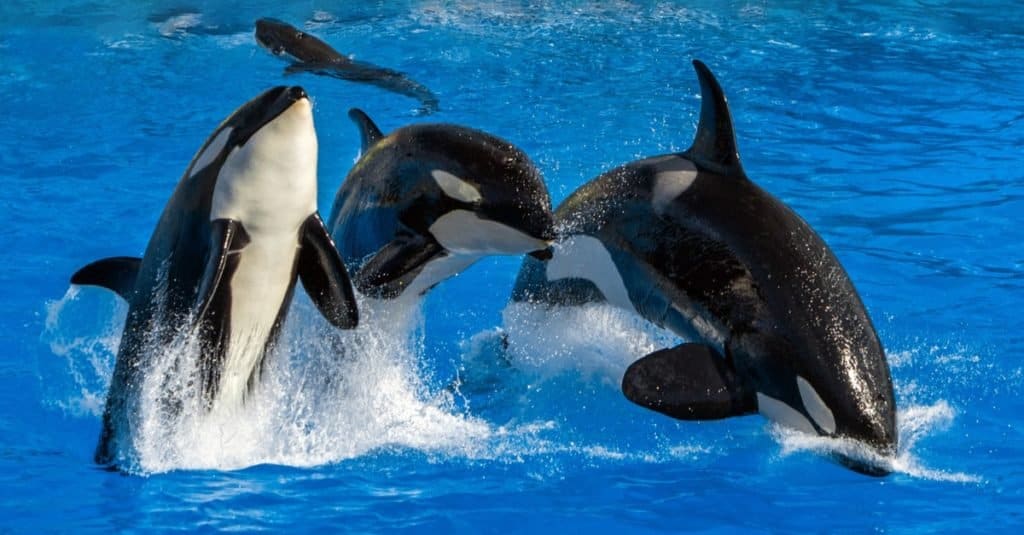
Orcas are highly social creatures that form pods in the wild.
©Andrea Izzotti/Shutterstock.com
An orca’s brain weighs roughly 15 pounds, and it is structured for intelligence. Bigger animals like the orca usually have a larger mass of brain cells in ratio to their bodies. The orca’s brain is roughly 2.5 times larger than expected for their body size. Various other aspects of the orca’s brain fascinate scientists and provide us with more insight into killer whale intelligence.
According to neuroscientist Dr. Lori Marino and multiple scientific findings, orcas have an elaborated insular cortex and are more cerebral than humans. This area of the brain is associated with an orca’s consciousness, memory, and general thoughts. It is responsible for the orcas’ emotions, interpersonal experiences, motor control, and self-awareness. The insular cortex allows the orca to experience complex emotions like compassion and empathy, and Dr. Lori Marino acknowledges that is a very interesting part of the brain.
Furthermore, orcas also have two primary auditory centers in their brains, while humans only have one. It is highly likely that orcas use sound to perceive the world around them and have evolved to process information in their brain from what they hear. Their brain is basically hard-wired for echolocation, their main way of navigating, communicating, and hunting.
5 Fascinating Facts About Killer Whale Intelligence
1. Orcas Have More Lobes in their Brain’s Paralimbic System Than Humans
Orcas have a highly developed amygdala, tectum, and paralimbic system. Their brain’s paralimbic system is likely responsible for spatial memory and navigation. Orcas have three lobes in their brain’s paralimbic system, whereas humans only have one.
2. Orcas Keep Part of their Brain Active When Sleeping
As conscious breathers, orcas will enter a unihemispheric slow-wave sleep. One-half of their brain is inactive during sleep, while the other half stays active to allow the orca to continue swimming and breathing while staying alert for danger.
3. Orcas Can Form Deep Emotional Bonds
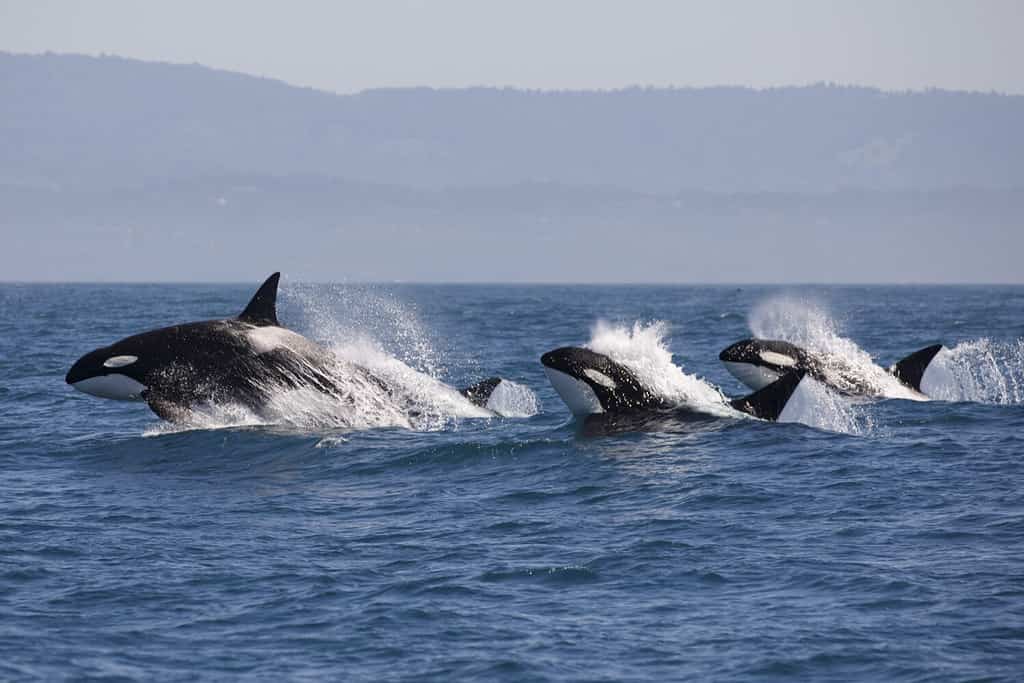
Killer whales can experience a range of emotions and form bonds with other pod members.
©Tory Kallman/Shutterstock.com
An orca’s brain complexity allows them to form deep emotional bonds with each other. Orcas even share their food with other pod members. It is also possible for orcas to feel complex emotions like grief, usually from the death of their offspring or pod member.
4. Orcas Have the Most Gyrified Brain in the World
According to this literature, the orca has an extremely gyrified cerebral cortex. The very wrinkly or folded outer part of their brains is an indication that they can process information quickly. This means that their brains have a large surface area and overall size that could contribute to their intelligence.
5. Orcas Have a Unique (and Sometimes Private) Way of Communicating
The primary form of communication between orcas is a series of whistling. However, there are some differences in whistle parameters and usage between the different ecotypes.
Orcas need to communicate by whistling for various reasons, such as for hunting and social interactions. Other ocean animals can hear this communication, including the ones they might be trying to hunt. Both resident and transient orcas communicate via whistling, although resident orcas seem to have a more complex whistling range. Interestingly, the transient orcas limit their vocal activity to keep it private from potential prey. Instead, they tend to whistle when they are milling around after a kill or logging at the surface.
1. Are Orcas Killer Whales?
Both “killer whale” and “orca” are common names for the same animal. Referring to orcas as killer whales is acceptable and it does not necessarily mean that people are mistaking them for whales. Sailors gave them that common name when they witnessed orcas killing and feeding on various species of whale. Furthermore, the name orca is derived from the species part of their scientific name, Orcinus orca.
Understandably, the common name “killer whale” might convince some people these animals are whales. Therefore, some people might find the name “orca” to be more taxonomically accurate.
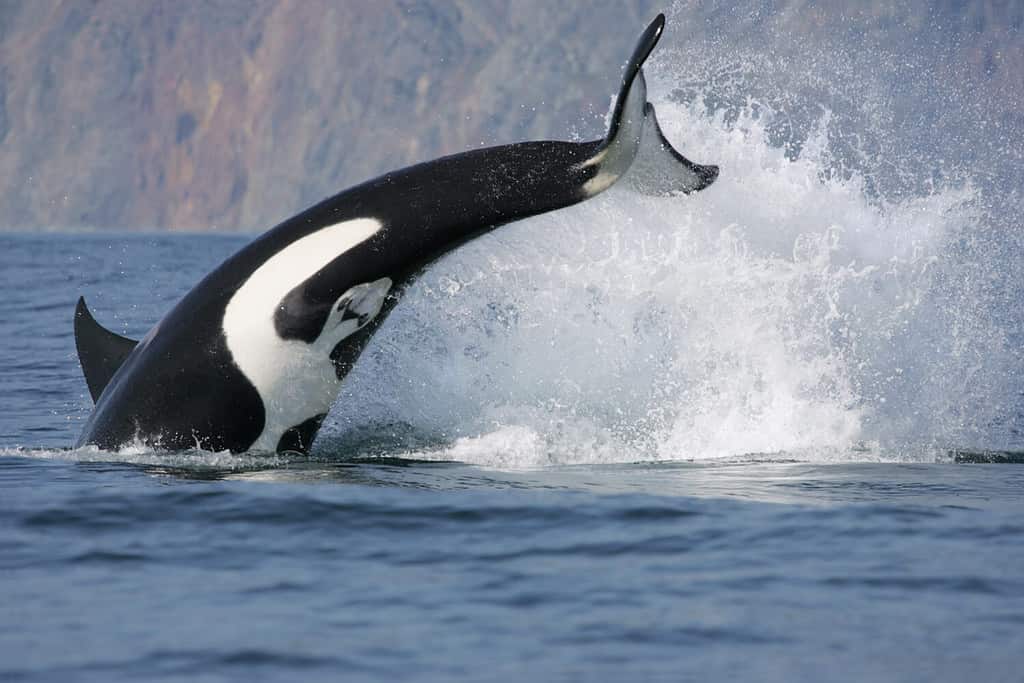
There is no difference between a killer whale and an orca.
©Tatiana Ivkovich/Shutterstock.com
The names “orca” and “killer whale” both refer to the sole species in the Orcinus genus and can be used interchangeably.
In Conclusion
Orcas are highly intelligent marine animals with complex brains. They not only have the cognitive abilities to experience complex emotions like grief and empathy, but they can also be remarkable problem-solvers. The orca’s brain is quite similar to that of a human and chimpanzee, both of which are highly intelligent animals. Most aspects of the orca’s behavior and cognitive abilities are only possible in an intelligent and conscious animal.
The photo featured at the top of this post is © Minette Layne / CC BY 2.0 – License / Original
Thank you for reading! Have some feedback for us? Contact the AZ Animals editorial team.




